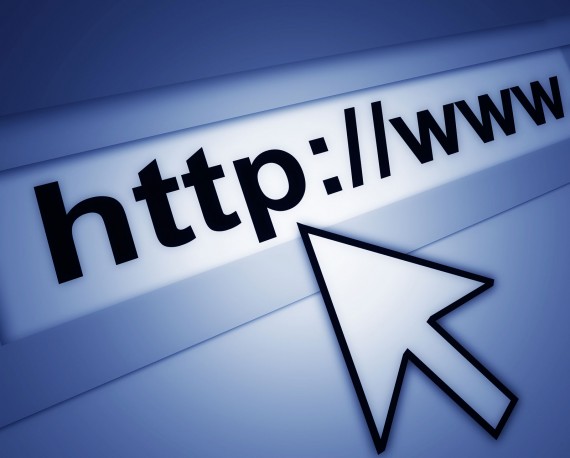(Not) Breaking News: People Who Work For The Government Look At The Internet
Apparently, people who work for the government are surfing the World Wide Web.
Matt Drudge spent most of the morning, and a good part of the afternoon, in full-on panic banner headline mode over a Reuters story that an agency of the United States Government routinely takes a look at this thing called the Internet:
(Reuters) – The U.S. Department of Homeland Security’s command center routinely monitors dozens of popular websites, including Facebook, Twitter, Hulu, WikiLeaks and news and gossip sites including the Huffington Post and Drudge Report, according to a government document.
A “privacy compliance review” issued by DHS last November says that since at least June 2010, its national operations center has been operating a “Social Networking/Media Capability” which involves regular monitoring of “publicly available online forums, blogs, public websites and message boards.”
The purpose of the monitoring, says the government document, is to “collect information used in providing situational awareness and establishing a common operating picture.”
The document adds, using more plain language, that such monitoring is designed to help DHS and its numerous agencies, which include the U.S. Secret Service and Federal Emergency Management Agency, to manage government responses to such events as the 2010 earthquake and aftermath in Haiti and security and border control related to the 2010 Winter Olympics in Vancouver, British Columbia.
A DHS official familiar with the monitoring program said that it was intended purely to enable command center officials to keep in touch with various Internet-era media so that they were aware of major, developing events to which the Department or its agencies might have to respond.
The types of sites that DHS officials are monitoring is interesting in itself because it really leads one to wonder what value they actually find in this program:
[The list includes] social networking sites Facebook and My Space – though there is a parenthetical notice that My Space only affords a “limited search” capability – and more than a dozen sites that monitor, aggregate and enable searches of Twitter messages and exchanges.
Among blogs and aggregators on the list are ABC News’ investigative blog “The Blotter;” blogs that cover bird flu; several blogs related to news and activity along U.S. borders (DHS runs border and immigration agencies); blogs that cover drug trafficking and cybercrime; and websites that follow wildfires in Los Angeles and hurricanes.
News and gossip sites on the monitoring list include popular destinations such as the Drudge Report, Huffington Post and “NY Times Lede Blog”, as well as more focused techie fare such as the Wired blogs “Threat Level” and “Danger Room.” Numerous blogs related to terrorism and security are also on the list.
Some of the sites on the list are potentially controversial. WikiLeaks is listed for monitoring, even though officials in some other government agencies were warned against using their official computers to access WikiLeaks material because much of it is still legally classified under U.S. government rules.
Another blog on the list, Cryptome, also periodically posts leaked documents and was one of the first websites to post information related to the Homeland Security monitoring program.
Also on the list are JihadWatch and Informed Comment, blogs that cover issues related to Islam through sharp political prisms, which have sometimes led critics to accuse the sites of political bias.
Also on the list are various video and photo-sharing sites, including Hulu, Youtube and Flickr.
It doesn’t appear that OTB is on the list of DHS must-visit sites for breaking information on world events. I suppose we ought to take that personally. What’s most amusing about this story, and the blogosphere’s reaction to it, though, is the fact that we already know this was going on. Stewart Baker at The Volokh Conspiracy, which I’m sure is on the list because they’re, you know, conspiratorial, notes that he wrote about this program two years ago:
Here’s what I said two years ago:
With his usual nudge-and-wink, Matt Drudge invites us to be dismayed that “BIG SIS” — his moniker for Janet Napolitano — is “Monitoring Web Sites for Terror and Disaster Info.” Drudge links to a story saying that DHS will be monitoring social media like Twitter, as well as websites like Drudge, to keep abreast of events during the Winter Olympics. The source of the story is a twelve-page “Privacy Impact Assessment” issued by DHS.
This isn’t the first Privacy Impact Assessment (PIA) on DHS’s use of social media. A few weeks earlier, DHS wrote a similar assessment of using social media during Haitian rescue operations.
I am indeed dismayed, but not for Drudge’s reasons. True, it’s disappointing that neither the Volokh Conspiracy nor www.skatingonstilts.com is deemed worthy of government monitoring. But what’s really dismaying is that DHS and its Privacy Office felt obliged to labor over two separate and painfully obvious privacy assessments just to do things that you and I would do by simply firing up our browsers.
That’s it. The story is that people at DHS are, gasp, browsing the Internet. As I said then, there’s no scandal, other than the electrons wasted by DHS agonizing over the privacy implications of browsing public Internet sources to find out what’s happening in the world.
And if it was a nonstory in February of 2010, what does that make it in January of 2012?
I’d say it makes Reuters, and Drudge, look pretty dumb. In any event, like Baker, I’ve got to say that I’m disappointed that neither OTB nor my personal site are apparently deemed important enough to be monitored on a regular basis by the Department of Homeland Security, and I’m totally with Jazz Shaw in wondering how one gets a job at DHS surfing the internet all day because that sounds like a pretty sweet gig.
On a more serious note, this story brings to mind James Joyner’s post yesterday about information overload in America’s intelligence agency. This program alone undoubtedly collections thousands of gigabytes of information, all of which has to be analyzed by someone, somewhere. Is it really likely that DHS is really getting that much useful intelligence from public websites to begin with, or that, if it is, its analysts aren’t so overworked that they’re just going to overlook something that might actually be crucial should it turn up in the weekly data dump? Perhaps some of these tasks can be performed by computers that search the information for keywords and flags things that might be significant for human attention. A system like that, though, would be dependent upon the reliability of the software, and it would still require a review by human eyes at some point along the way. With this program as with many others, we’re mining a ton of data but it’s unclear that we’re ever going to be able to find the needles in the haystack that might actually be of value.






Normally a lurker, but just had to say that the typo in the first link is just so appropriate to this story that I LOL’ed.
I really enjoy the content here–smart articles.
I feel your pain. It’s like the fact that I’ve never had a book banned. I mean, I write dark, violent, sexy stuff full of references to religion, devils, supernatural beings, aliens . . . I even talk about evolution. To teenagers! Impressionable youth!
I mean, damn, what’s it take?
This is one of the areas where the government is in a no win situation. Spend time monitoring the Facebook? Get a nasty Drudge link. Don’t monitor Facebook and something happens that was communicated there? Get a nasty Drudge link.
*Must Read* DHS DOCUMENTS
Publicly Available Social Media Monitoring and Situational Awareness Initiative of 2010 FULL TEXT
– http://sovereignthink.wordpress.com/2012/01/13/publicly-available-social-media-monitoring-and-situational-awareness-initiative-of-2010-full-text/
Privacy Compliance Review of the Social Media Monitoring and Situational Awareness Initiative of 2011 FULL TEXT
– http://sovereignthink.wordpress.com/2012/01/13/privacy-compliance-review-of-the-social-media-monitoring-and-situational-awareness-initiative-of-2011-full-text/
-sovereignthink